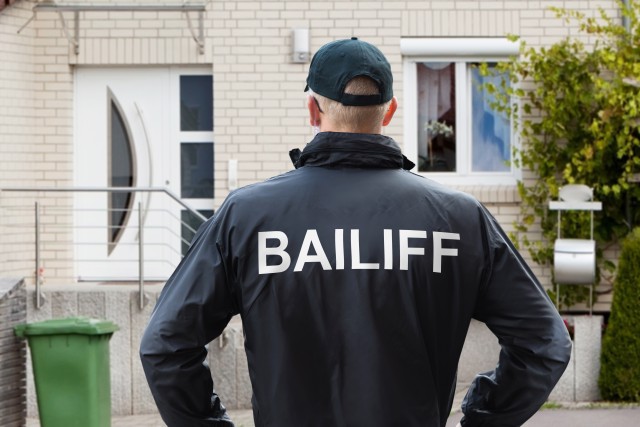Introduction
Families struggling with debts are facing intimidation and bullying from unscrupulous bailiffs who fail to follow the rules, according to consumer groups. These aggressive debt collectors are putting immense pressure on people in financial distress, pushing them to the brink. Here's your guide to coping with bailiffs and protecting your home and loved ones.
Understanding Bailiffs and Their Powers
If you haven't paid a bill, councils or private companies can pass the debt to bailiffs to recover the money. However, bailiffs must adhere to strict guidelines when attempting to collect the debt. They must send a "notice of enforcement" and wait seven days before turning up at your home. Seek free professional advice from organizations like StepChange or Citizens Advice during this period to make an agreement with your creditor.
Dealing with Bailiffs at Your Doorstep
If a bailiff or enforcement agent knocks on your door, ask for proof of their identity and the reason for their visit. Legitimate bailiffs should carry identification issued by the court or enforcement agency. Verify their identification before allowing them into your home. If they cannot provide proof or refuse to leave, tell them to leave and call 999 if necessary.
Understanding Bailiffs' Powers of Entry
Bailiffs can force entry to your home for certain types of debt, such as magistrates court fines, income tax, or stamp duty. However, they are not allowed to break down the door. If they try to force their way in, they may bring a locksmith, but this is rare. For other types of debt, such as unpaid council tax or credit card balances, bailiffs cannot force entry. Extra protections are in place for vulnerable individuals, providing more time to make a payment offer and ensuring they are not visited alone.

Keeping Bailiffs Out of Your Home
Once you have verified the bailiffs' ID, ask for a breakdown of the debt they are collecting and who it is owed to. Remember that you are not liable for someone else's debt. If the debt is yours, tell the bailiff to leave and communicate with a debt charity and your creditor to arrange payment. Most bailiffs will leave if instructed to do so. If they enter your home and you cannot pay the debt, they may make a list of goods to auction off. Essential items and those used for work are usually protected. You can move your belongings before their arrival, but hiding or selling them after the bailiff has listed them is a criminal offense.
Conclusion
Dealing with bailiffs can be a daunting experience, but understanding your rights and seeking professional advice can help protect your home and loved ones. Remember to verify the bailiffs' identification, seek assistance from debt charities, and communicate with your creditor to make repayment arrangements. By taking these steps, you can ensure a safer and more secure financial future.
Did you miss our previous article…
https://hellofaread.com/money/uk-faces-ribena-and-lucozade-shortage-as-factory-workers-strike/








